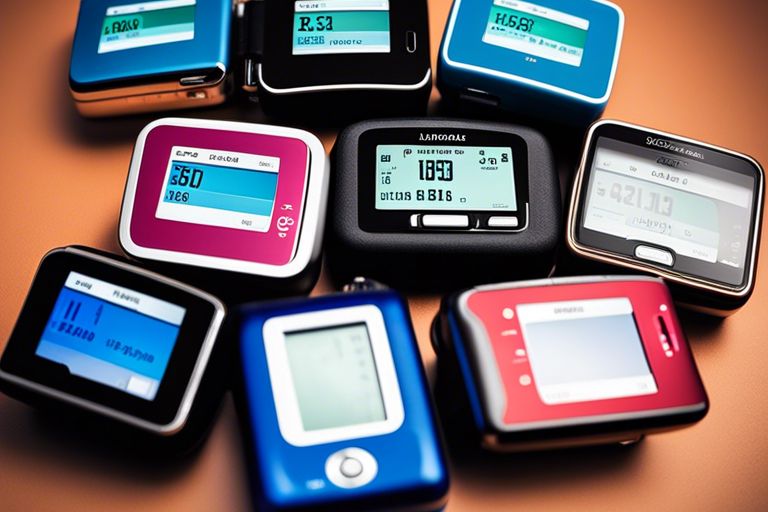Diabetes is a chronic medical condition that affects millions of people worldwide. Diabetes type 1, in particular, is an autoimmune disease that occurs when the body’s immune system attacks and destroys the cells that produce insulin in the pancreas. This condition requires lifelong insulin therapy and can lead to various physical complications. However, not many people are aware of the psychological impact of diabetes type 1. The emotional side effects of living with diabetes can be overwhelming and affect a person’s quality of life. In this article, we’ll explore the psychological impact of diabetes type 1 and how to cope with the emotional side.
Understanding the Psychological Impact of Diabetes Type 1
Living with diabetes type 1 can be challenging, and it’s not just about managing blood sugar levels. The psychological impact of this condition can be significant and affect various aspects of a person’s life. Here are some of the emotional side effects of diabetes type 1:
Anxiety and Stress
People with diabetes type 1 often worry about their blood sugar levels, which can lead to anxiety and stress. They may feel anxious about the possibility of hypoglycemia or hyperglycemia, which can cause symptoms like dizziness, confusion, and even loss of consciousness. These worries can affect a person’s daily activities and cause significant distress.
Depression
Depression is a common psychological issue among people with diabetes type 1. This condition can result from the stress of managing a chronic illness, the fear of complications, or the social stigma associated with diabetes. Depression can lead to symptoms such as sadness, loss of interest in activities, changes in appetite and sleep patterns, and even thoughts of suicide.
Fear and Denial
Some people with diabetes type 1 may struggle with fear and denial, which can prevent them from managing their condition effectively. They may refuse to accept their diagnosis, skip medical appointments, or ignore symptoms, which can lead to poor blood sugar control and long-term complications.
Burnout
Managing diabetes type 1 requires significant effort and can become overwhelming, leading to burnout. Burnout is a state of emotional, physical, and mental exhaustion caused by prolonged stress. It can affect a person’s motivation to manage diabetes and lead to poor self-care habits.
Coping Strategies for the Emotional Side of Diabetes Type 1
Living with diabetes type 1 can be challenging, but there are coping strategies that can help manage the emotional side effects of this condition. Here are some tips:
Education and Support
Learning about diabetes type 1 and receiving support from healthcare professionals, family, and friends can help reduce anxiety and stress. Education can also help people understand the importance of self-care and motivate them to manage their condition effectively.
Mindfulness and Relaxation Techniques
Practising mindfulness and relaxation techniques, such as deep breathing, meditation, and yoga, can help reduce stress and anxiety. These techniques can also improve mood and help people cope with the emotional side effects of diabetes type 1.
Cognitive Behavioral Therapy (CBT)
CBT is a type of therapy that can help people with diabetes type 1 identify and change negative thought patterns and behaviours. CBT can help reduce anxiety and depression and improve a person’s quality of life.
Social Support
Connecting with other people with diabetes type 1 through support groups or online communities can provide a sense of belonging and reduce feelings of isolation. Social support can also help people cope with the emotional side effects of diabetes type 1 and provide practical tips and advice for managing the condition.
Conclusion
Living with diabetes type 1 can be challenging, and the emotional side effects of this condition can be significant. Understanding these emotional side effects and developing coping strategies can help people manage their condition and improve their quality of life. By seeking education and support, practising mindfulness and relaxation techniques, seeking cognitive behavioural therapy, and connecting with others in similar situations, individuals with diabetes type 1 can manage the psychological impact of their condition.
FAQs
- Is diabetes type 1 a mental illness? No, diabetes type 1 is not a mental illness, but it can have significant emotional side effects.
- Can diabetes type 1 cause anxiety? Yes, people with diabetes type 1 may experience anxiety related to their condition, such as worrying about blood sugar levels.
- How common is depression among people with diabetes type 1? Depression is common among people with diabetes type 1, with up to 30% of individuals experiencing symptoms at some point in their lives.
- Can cognitive behavioural therapy help with diabetes management? Yes, cognitive behavioural therapy can help people with diabetes type 1 manage their condition and improve their quality of life.
- Are there any online communities for people with diabetes type 1? Yes, there are many online communities for people with diabetes type 1, such as diabetes support groups on social media platforms and forums.




